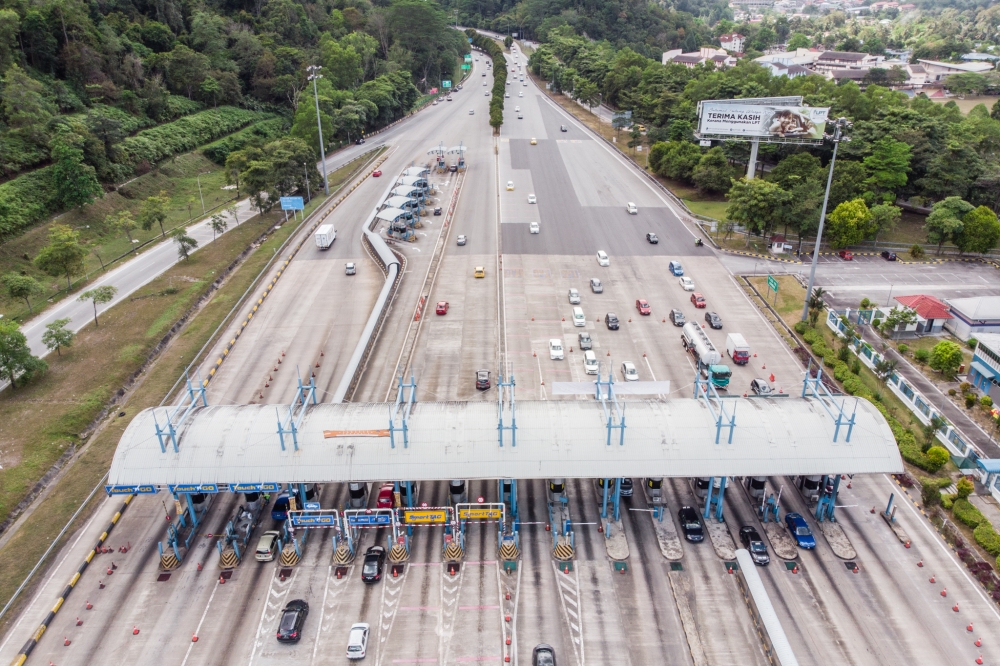GEORGE TOWN, Sept 8 — Penang Water Supply Corporation (PBAPP) has outlined three contingency plans that included sea water desalination to meet future water supply needs.
PBAPP Chief Executive Officer Datuk Jaseni Maidinsa said PBAPP has drafted a Penang Water Supply Initiative 2050 (PWSI 2050), with the three contingency plans, that will be implemented from 2021 onwards.
“We have commissioned a feasibility study on the proposed PWSI 2050 projects and it is scheduled to be completed by January 2021,” he said in a press conference after the PBA Holdings Bhd annual general meeting today.
He said the first plan under PWSI 2050, Package 12A of the Sungai Dua Water Treatment Plant, involved the construction of a new 114 million litres per day (MLD) water treatment module.
“This will be constructed at the existing plant for us to sustain a better water reserve margin and we aim to start the project early next year,” he said.
He said the second contingency plan is the Sungai Perai Water Supply Scheme (SPWSS) which is aimed at tapping Sungai Perai as an additional raw water resource with a potential yield of 136 MLD.
Raw water from this river may not be safely treated using conventional water treatment technology so the SPWSS will look at using alternative water treatment technologies to treat the raw water for human consumption.
Jaseni said the third plan is phase one of the Penang Desalination Water Supply Scheme (PDWSS) with a potential yield of 250 MLD.
“Phase one of the PDWSS is to construct a desalination facility in the southern area of the island to cater to Balik Pulau area and the upcoming three islands under the Penang South Reclamation project,” he said.
He said phase one of the project is scheduled for commissioning in December 2024 and subsequent phases will be implemented until 2050.
“This is to ensure we do not face water supply problems by 2025,” he said.
Jaseni said these contingency plans were due to a delay in the implementation of the Sungai Perak Raw Water Transfer Scheme (SPRWTS) as Sungai Muda may not meet Penang and Kedah’s raw water needs until 2025.
He said the SPRWTS is yet to be implemented as discussions with Perak have reached a stalemate.
“Penang is willing to buy raw water but Perak wishes to sell treated water,” he said.
He said there was no precedent of treated water transfer schemes as other large-scale water transfer projects in the country such as the Johor-Melaka and Pahang-Selangor schemes are raw water schemes.
“The SPRWTS will take seven years to complete and commission so if the project is implemented from 2021, it may be operational from 2027 but Penang may face a raw water shortage by 2025,” he said.
He said due to the stalemate with Perak, the project is yet to be implemented but Penang will continue to pursue the implementation of the SPRWTS.
He stressed that the PWSI 2050 will not compromise or affect the abstraction of raw water from Sungai Muda and PBAPP’s stand for 160,000 ha of rainforests in Ulu Muda to be preserved as water catchment areas.
“The PWSI 2050 projects are to introduce additional water supply to meet future water demands in Penang but we will still need the SPRWTS, raw water from Sungai Muda and preservation of the Ulu Muda rainforests to ensure raw water security towards 2050,” he said.
















.jpg)


